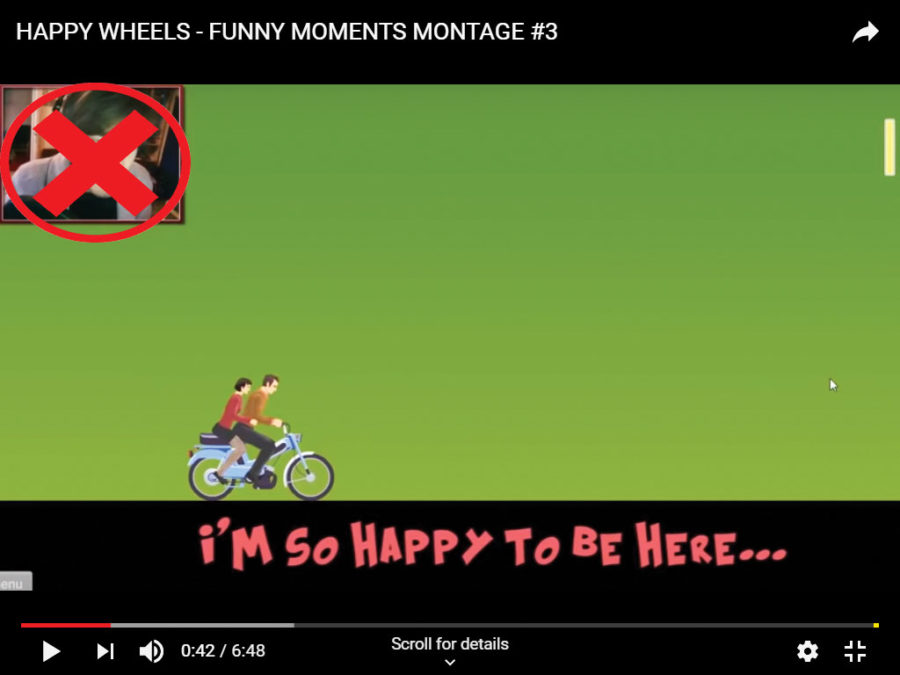Where does the line get drawn?
Graphic by Finnegan Courtney; Photo from PewDiePie Youtube channel
PewDiePie, here with his face crossed out, satirizes gaming and the internet, but his humor has drawn criticism.
Last month Bedford Middle schoolers became readily invested in a competition between PewDiePie, a sometimes profane Internet influencer, and T-Series, an Indian music channel. The battle? Which Youtube channel could boast the greatest number of subscribers, and the “fight” reached the hallways of Bedford.
Students were urging others to subscribe to one channel over another. One student supporting PewDiePie even created business cards for PewDiePie.
The problem for PewDiePie and schools is that in the past he has made anti-semitic and white supremacist comments on his Youtube channel. His comments recently cost him Disney sponsorship as the company cut ties on a business deal, according to the “Guardian.” He has labeled these as jokes all the while reaping the benefits that come from eyes visiting his channel.
However, this article is not about him being anti-semitic or a white supremacist. What this column is focusing on is the issue of policing student thought.
I feel it is understandable and appropriate for the administration to point out hate speech when it enters the school. Under Title VI of the Civil Rights Act of 1964 and Title IX of the Education Amendments of 1972, schools must provide a non-discriminatory environment that is free of hostile speech.
But when does providing that environment start to infringe on students’ right to free speech and thought?
“The key factor in taking a stance on PewDiePie is that there was a disruption caused by students in our school and brought to my attention by teachers,” wrote Dr. Adam Rosen in a response to the paper about the incident. “This disruption did not impact the entire school; it was addressed administratively and is not for mass consumption.”
I believes, yes, Bedford should educate students on issues, but it should use prohibitions only as a last resort.
School administration, due to its concerns of promoting white supremacist ideologies, has placed a ban on PewDiePie’s name, all relations to him, and even saying “Subscribe to PewDiePie,” a phrase which is now quickly leading to trouble for some students.
I believe that banning all mention of PewDiePie is unwarranted as it has not caused a distraction within the classroom.
The school needs to respect students’ rights as outlined in the landmark court case, Tinker v. Des Moines. In that 1969 case, the Supreme Court ruled that “students do not shed their constitutional rights to freedom of speech or expression at the schoolhouse gate.”
This means that all public school students do indeed have some measure of freedom of speech as long as their speech does not disrupt the education of others. Walking out of class in support of a cause is not appropriate. Talking in the hallway, distributing business cards should not lead to restrictions.



